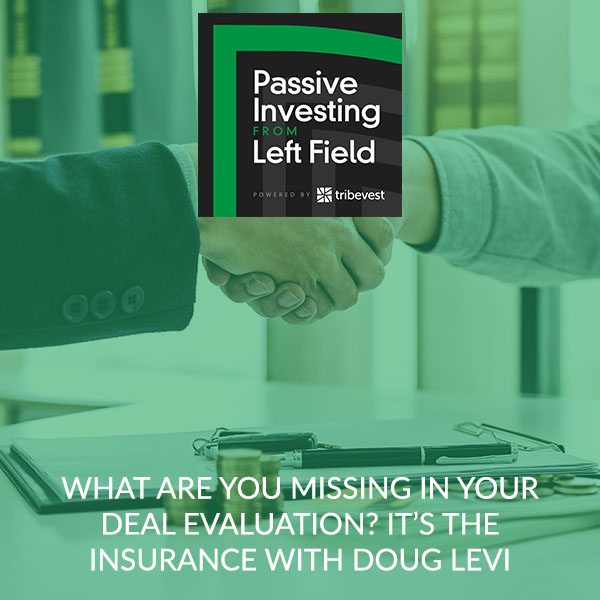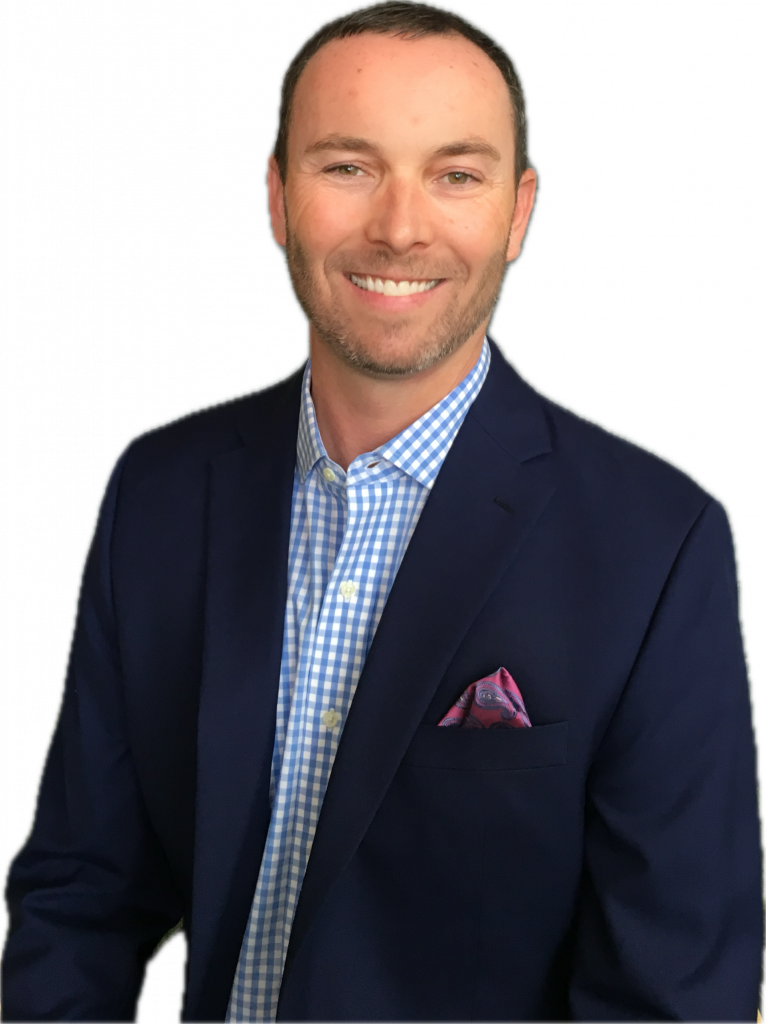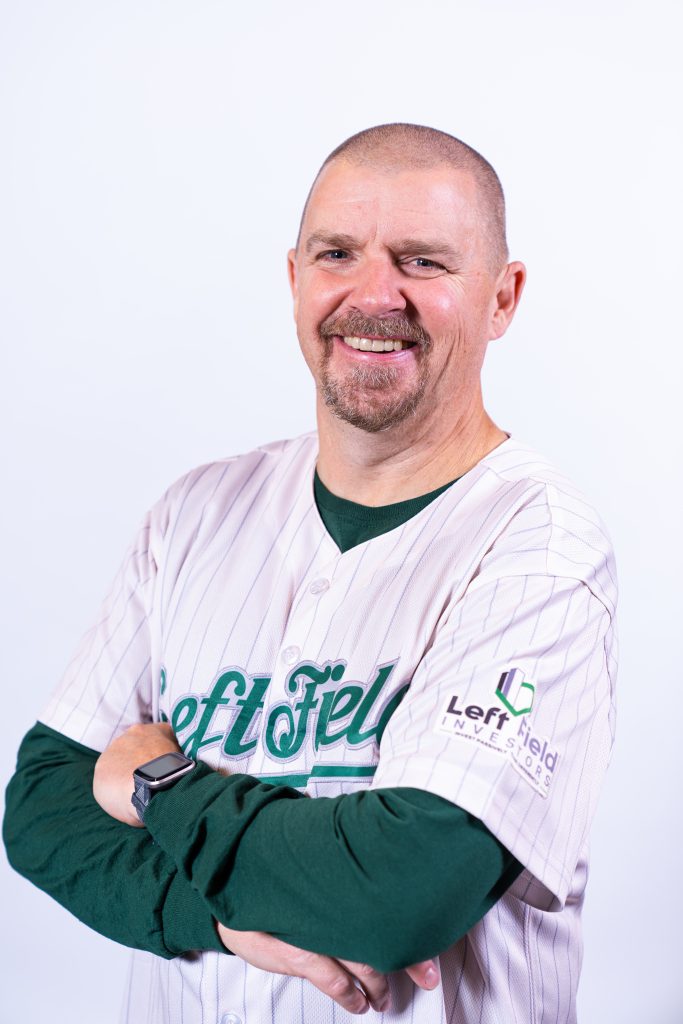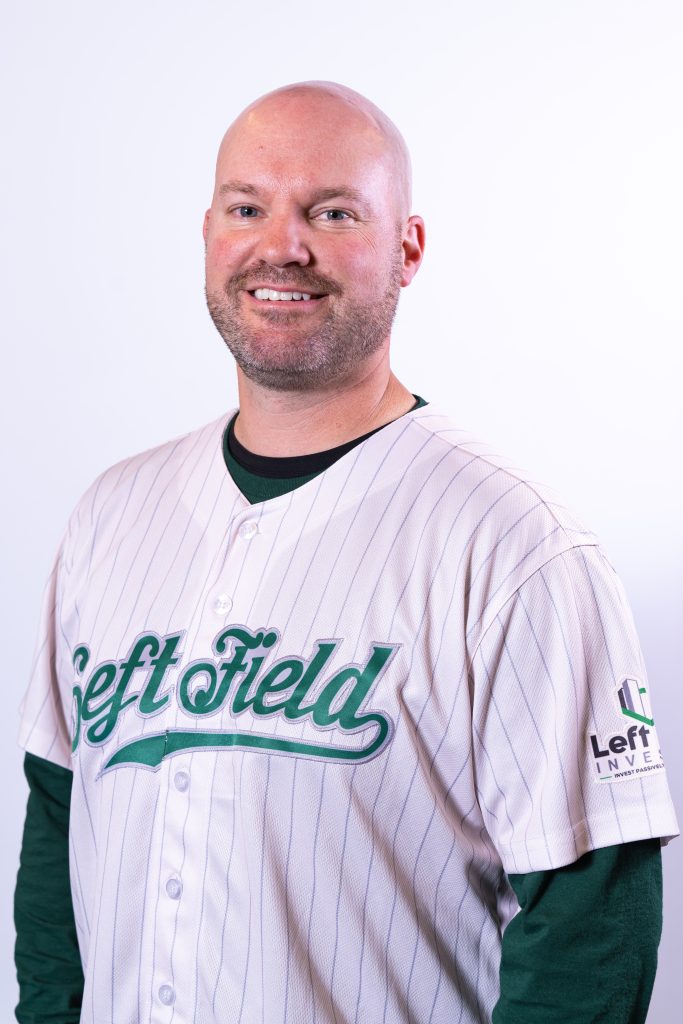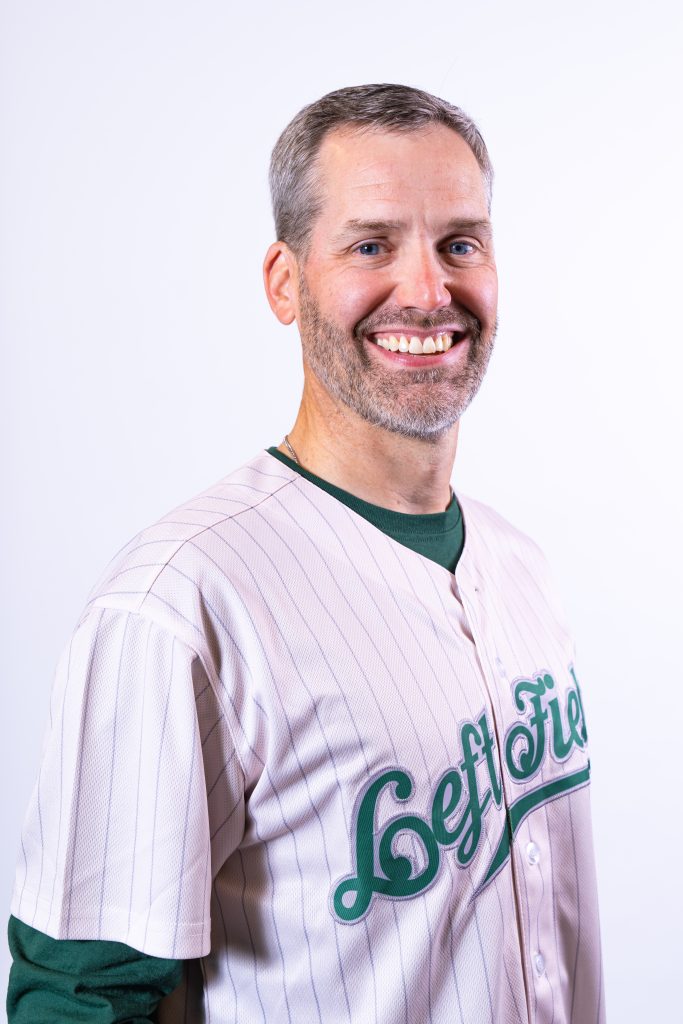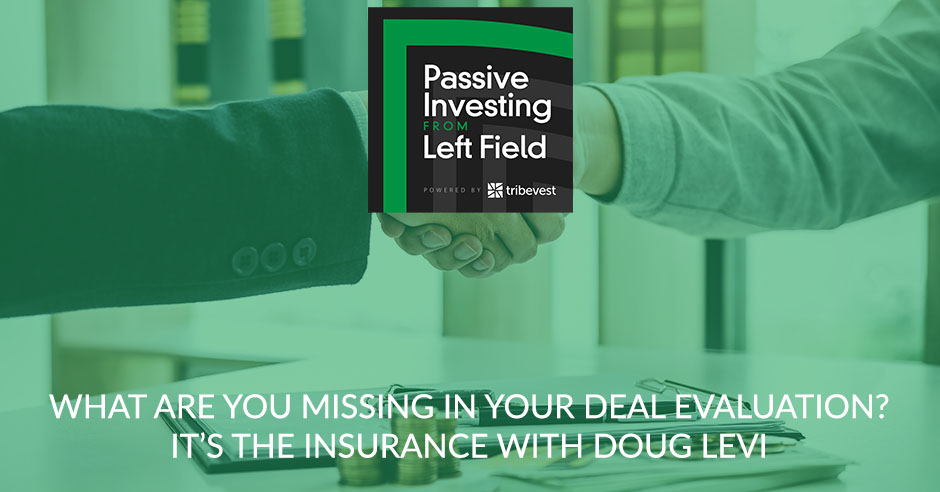
Insurance is not often discussed when evaluating a real estate syndication, but it is critical to the success of your investment. It is important to ask the operator if they have business income insurance, umbrella insurance, and workers’ compensation insurance for the property and business. It is not enough to assume that the operator has these programs in place – this should be part of the investment evaluation. In today’s episode, Doug Levi shares his expert advice on these topics and what else we should be looking for from the insurance side of things. Doug is the Chief Encouragement Officer at Strategic Insurance Services and the author of Surviving the Insurance Jungle. Tune in with the master of risk management and learn how to evaluate the insurance program for your investments!
—
Listen to the podcast here
What Are You Missing In Your Deal Evaluation? It’s The Insurance With Doug Levi
I’m excited to have Doug Levi with us. He’s the Chief Encouragement Officer at Strategic Insurance Services. He works in all areas of risk management and insurance and he’s here to talk about how passive investors should be evaluating a potential deal from the insurance side of things. This is a new topic for us. We haven’t concentrated on this much but this is going to be very eye-opening to learn how we should be looking at insurance as investors. Doug, welcome to the show.
I’m happy to be here. It’s great to be here with all the other investors on the show.
The way we usually start the show is to find your journey. How did you get into insurance and get involved with real estate investors as well? If you can tell me your journey, that’d be a great place to start.
I joke like everybody, “I wanted to be an insurance agent when I grew up. It was either a baseball or basketball player, movie star or insurance agent.” That was a joke for anyone not laughing. That was not my goal as a kid. God has a plan for your life, even if you don’t realize it. I went to school. I double Majored in Economics and Management. I thought I wanted to go the investment banking route. I decided I didn’t want to work 80 hours a week, be on Wall Street and all that. I was doing financial services working in that area up in Philadelphia. I moved down here to Florida. I’ll condense a very long story quickly.
I thought I came out of a bad interview to be a financial advisor with Wells Fargo and bombed the interview. I normally do good in interviews. I’m 23, pretty motivated and fired up. I start handing out my resume in Tampa. I’m in the Tampa Bay area of Florida. I went up and down the main boulevard where the interview was and started handing out my resume. One of them was at a State Farm office. I thought about property and casualty insurance or anything like that. I go in there and hand in my resume. I connected with the area manager and ultimately, got offered the job at Wells Fargo to be a Financial Advisor but I landed with State Farm.
I spent two years at State Farm. I cut my teeth on the property and casualty side. I started my agency Strategic Insurance Services in 2006. We’re in all 50 states. We serve about 6,000 clients and over 20 million enforced premiums. I have a great niche in the real estate space. How did I get into that? I tell real estate investors this all the time. There are two parts to every transaction that real estate investors need to deal with. Those are taxes and insurance, the ones you can at least do something about. Some leverage you can pull with insurance. Tax is pretty fixed.
[bctt tweet=”There are two parts to every transaction that real estate investors need to deal with: taxes and insurance. ” via=”no”]
I found it great working with real estate investors at a variety of levels. That could be anything from people’s commercial strip centers, habitation apartment complexes or warehouses down to we have clients that have 30 or 40 single-family homes that we have on a schedule. Certainly, it was a niche for me that I enjoyed. I’ve always been interested in real estate and it worked well for our agency here.
I started my career as a reinsurance underwriter in Philadelphia. We have a little bit of that in common but it’s funny for a guy like me, who was in insurance for many years, to start my career. Now that I’m a real estate investor, I’m embarrassed to say I have never once thought about insurance when thinking about real estate syndication. This is going to be great to learn what I should have been asking. My first question is, what should I ask my syndicator about the insurance plan when I’m looking at a deal? What should I be looking for?
Right after Hurricane Ian, we’re here in Florida. It is going to be the third-largest storm to ever hit the US. I tell people, “When insurance works well, it helps put you back where you were. When insurance doesn’t work well, if you’ve ever been in a scenario where you’ve had a bad claim, it can be one of the most heart-wrenching, challenging and frustrating things.” The takeaway to the passive investor out there is while you are passive, you’ve got skin in the game. You’re putting your hard-earned money or your dollars to work and then you’re transferring that to a syndicator to say, “You run it, you figure it out.” At the end of the day, if there’s a claim or large loss, ultimately, it’s going to impact the entire group.

To me, it’s one of those things that not a lot of people spend time necessarily thinking about. It’s a check on a checklist for both the local investor who’s maybe doing flips or buying homes and holding. I would argue, even the syndicator, depending on the size of the syndication, may get more sophisticated and have a control or CFO that’s analyzing and going deep. I still see a lot of times where that’s not the case. It’s the last minute, “This is something we got to check off the closing list.”
From a risk perspective, it’s a good idea to understand how the syndication is protected and what they have in place so that if the big claim comes, they’re prepared depending on how things are structured. Could there be a capital call if things weren’t properly in place? The syndication looks at the investors for more money to do repairs on the buildings. I’m sure there are all sorts of flavors of how things are set up but the takeaway is if you got some skin in the game, you should understand what you’ve got and how it works.
What questions should you ask? When we’re analyzing a deal, typically as passive investors, I’ve already vetted the sponsor and am confident the sponsor at least knows what he or she is doing. When they send me a deal, I do my analysis. I’m not digging in nearly as deep as they are. It would be the same for the insurance. I assume they have insurance because otherwise, they wouldn’t be able to get a loan. That’s number one. That’s as far as I’ve gone into it. What questions do I need to be asking to make sure that I am not digging too deep but making sure that they understand, “We’re covered. We have all the parts we need?”
At the very least one, I would ask and say, “I’d like to see a copy of the insurance that we have enforced now.” That should be something that a syndicator could show pretty easily, “Is it a name you’ve ever heard of or recognize from a carrier perspective?” There are all investors out there and different personality temperaments and even the passive investor, maybe people that are more analytical that want to understand. I’ll say this very practically speaking, I realize the focus of the group is on the passive investment side. We already established at the end of the day that if there is a claim or something serious goes wrong, the insurance is there to protect that syndication or that group.
What we’re seeing a lot is inflation at all-time highs. You don’t have to go far to look for that news of inflation, construction costs or labor costs. It is at least 40 or 50 years high. That’s having a symphony impact on replacement costs for insurance coverage. What I do see at times is you can have a policy depending on the setup where maybe it renews every year. If it has not been reviewed or is not being actively reviewed or managed and depending on the level of sophistication that the insurance agent or risk management advisor has and systems in place that they do to proactively look at it, you may have syndication that you’re invested in that’s not insured properly.
This goes to pulling the thread from the sleeve of, “If we’re not insured properly, there’s a fire and the building burns the ground, where does that money come from? Will this syndication come back and ask me for that?” That’s more of a contractual legal requirement that gets into a different area. Those would be a couple of the big ones. I would certainly want to ask for copies and see the current insurance structures that are in place. Depending on the size of the portfolio and what’s there, I would want to understand a little bit about the coverage that they have on each building and make sure, “Does it at least pass the sniff test?” You can pretty easily do a price per square foot.
I realized trends are going to vary depending on the area that’s invested and it’s going to cost more if I’m in New York City than in Tampa, Florida. It’s going to cost more in Tampa, Florida than maybe if I’m in Kansas or something. In general, it was a very rough rule of thumb anywhere from at least $150 to $200 a square foot for rebuilding. It is becoming the norm for commercial structures or residential structures. There’s a wide range that can go there.
That’s probably an easy rule of thumb that someone could at least look at and say, “These are the assets that I’m investing in passively. Roughly how big is the square footage? How much coverage is there on a price per square foot replacements or at least at $150 to $200 or square foot?” If you’re a lot less than that, it pauses for concern.
In our discussions before, you gave me some ideas of things that we should be asking the operator. I want to go through some of those and understand why those are things we should ask and also define some terms. The first one is co-insurance. I did say I was an insurance guy from way back. I was on the liability side. This co-insurance thing has always been confusing to me because it’s more of a property side deal. I’m not sure I understand it. Can you talk about what co-insurance is? How is it different from a deductible? We’ll get into why you should be asking about that.
The other thing I would imagine within the group, even if people are doing passive investments, perhaps at the very least, is they probably have their homeowners insurance, real estate holdings or anything like that. It’s very high-level and simple. Co-insurance is a term that’s used on property insurance. Almost all policies have co-insurance clauses. I’d tell people and joke about this, “The insurance policies aren’t 40 or 50 pages long for everything that’s covered. Some terms and conditions refine covered ads or take away.” Most policies have an 80% co-insurance clause, which says, “If my building costs $1 million to rebuild.” Let’s assume that the true cost of a rebuild is $1 million.
[bctt tweet=”Co-insurance is a term that’s used on property insurance. Almost all policies have co-insurance clauses.” via=”no”]
The building we go out in the market. We get bids from three general contractors to build light, kind and quality square footage. All three of them to $1 million. If I’ve got an 80% co-insurance clause that says, “I need to be insured at least $800,000.” That’s 80% to value. If I drop below that, the insurance company applies a penalty in the event of a claim. It can be pretty significant. This goes into this whole thought of, “Why as passive income investors should I even care about what the insurance syndication is and talking about inflation, rising costs and the coverage of this syndication?” These numbers can turn quickly.
If you’re underinsured or fall below that 80% in the event of a claim, you’ll get penalized. You will not get what you think you’re going to get. I could go on and run through an example, maybe probably a little outside of the scope of this but very simply saying, “It’s a part of almost all property policies.” There are times when it’s waived. I will put that out there. There are certain policies inform where it’s waived, which if you can have that as a syndicator investor if you can have that, that’s preferred. A lot of times, there is a clause on there. Normally, it is 80%. It can be a messy thing in the event of a claim if you’re underinsured.
The question I ask the operator is, “Do you have a co-insurance clause and is it at least 80%?”
Yes, we have a co-insurance clause on our insurance. What’s our insurance to value? If we also drill down and this is something that any passive income investor could ask their syndicate or operator and their operator could very easily go to an insurance agent like myself, whomever they’re working with and say, “I want an updated replacement cost estimate.” A replacement cost estimate is a tool that we use as agents where you fill in square footage, bill finishes or whatever the characteristics of the building are.
These are done by engineering companies to give us an analysis of what it cost to rebuild. It could even be, “When’s the last time we’ve run a replacement cost estimate on our buildings to make sure we’re properly insured?” If we keep it bone simple and say, “We’re trying to make sure that our biggest asset as the syndication, not necessarily what other people may have personally, are properly insured,” that’s what this comes down to.
You want to make sure that the insurance program is reviewed by multiple brokers. Can you talk about how often they should do that?
That’s big. I’ve been in the business for many years. I’ve got clients that have been with me for years. Certainly, any insurance agency wants that. Depending on the level of service that these syndicators get and the expertise the agency has, I would certainly say at least every other year. In my opinion, you should shop, look to bring somebody else to the table and keep people like myself honest. I don’t want to say honest but make sure that people aren’t asleep at the wheel. On our team, we have a very proactive process with our communication with our clients.
We do 18 to 21 touchpoints a year. We have a whole renewal review process. We go to market and bid each year with over twenty insurance carriers depending on the size of the risk. We’ve got a good system in place but you hear of the joke of the insurance agent who’s maybe out golfing and not rolling up the sleeves like they used to. That’s a good business practice that any probably recurring costs that are significant in nature that could be bitter shop probably every other year, at the very least.
When you’re having that conversation, should you talk to the broker that you have currently and ask them to shop to multiple different insurance companies? You’re not just talking about broker shopping. You’d also want the broker to go and make sure that the insurance company you’re using is the correct one and has the best value based on the insurance that you need and the cost that it is going to take.
The flip side is the longer you’re with a carrier, this is in general, normally the better pricing, especially if claims have been pretty good or minimal. I mentioned I started my career with State Farm and maybe it’s a smaller apartment complex or something. State Farm is not huge in commercial but perhaps the policy’s been with State Farm for many years. It’s a good company and maybe that’s the best price in the best place for it. The idea is that sometimes that’s not always the case and to make sure that you’re at least encouraging the operators to do that or ask those questions like, “What is our strategy? How often do we go and bid? How often do we ask for another broker to come in and take a look at what we’ve got?”

No doubt the commercial insurance market is traditionally dominated. Independent agents control over 85% of the marketplace. Unusually, Allstate, State Farm or Farmer’s Insurance are going to be big in the commercial. It’s more guys like myself that are independent. You get in a case where not all independents have access to the same markets. Even if you’ve been with an independent for a while maybe there’s somebody who’s got other markets or programs that would be beneficial to the syndication.
If you are talking to the operator and asking about their insurance, I know that a lot of insurance companies are brokers. I’m not sure which? Many both, offer proactive services to help minimize the at the property. Should we be asking about what those are and have they had those conversations lost control?
Those are big. The more that you can do to mitigate the risk front. It could be as simple as a lot of properties do get inspected by the insurance company but anything that can be done the same mitigate, maybe there’s a tree too close to a building or the sidewalk needs to be repaired or some maintenance things that could lead the liability issues. Back in the day, you were a liability guy. You have somebody slip and fall and they break their neck or something. That could be a huge claim.
So much of what we’ve talked about has been focused on property far. The liability is a big area certainly. We had one of our carriers in Liberty Mutual in the team meeting. We’re talking about, especially here in Florida, the litigious nature that we’re seeing and the increase in the severity and size of the claim. In other words, the claims that typically, if there is a slip and fall and we compared it 10 or 20 years ago, what would the payout have been or how would the claim have been adjusted compared to now? The numbers are way up.
Anything that you can get services from doing some risk management can be outside of an insurance agent or broker. It very well could be tied to it, depending on the agent or broker. To me, those are things that I would certainly be asking my operator and saying, “What are we doing to be proactive to make sure that we’re minimizing risks to keep our claims down, keep us profitable, keep our insurance costs down and make sure that we’re studying the ship there?”
You mentioned liability. I’d like to bring up Umbrella Insurance. First of all, can you tell us what umbrella insurance is? What level of Umbrella Insurance should a large multifamily property have?
A couple of schools of thought here if we go and talk about the level of Umbrella Coverage. I’ve heard personal injury attorneys talk about this and net worth. I’m going to use the analogy of a personal liability umbrella for the sake of ease right here but let’s say I had a personalized net worth of $5 million. You could do the same play with the real estate asset or portfolio. I’m well aware of we’ve got a $100 million real estate portfolio, you probably don’t need a $100 million umbrella but what I would say and speak on is I still see lots of cases where there’s no umbrella at all. It’s just a general liability policy.
For those that aren’t aware or don’t know, an umbrella is an extra layer of protection that goes above and beyond an underlying liability policy. If it’s a portfolio and each underlying multifamily unit or multifamily location has a $1 million or $2 million liability and let’s say there are 5 locations, you could do a $5 million or $10 million umbrella and have that layer over the entire portfolio, the idea is that let’s say there’s a fire or someone dies and there are multiple people that also got injured. The claim is going to be way in excess of $1 million.
$1 million would trigger and payout from the underlying policy and then that umbrella would drop down and kick in whatever limits were there. To me, that’s an incredibly important protection for the syndication and then you as the passive investor. The challenge with liability in general or if we look at it differently, even with a larger property, frankly, is a relatively fixed cost.
It may be a big number but it’s pretty easy to pin the cost. When you have somebody who got very hurt or died in a fire, we’re getting into pain and suffering in punitive damages, court calls, court fees and all that. It’s not as easy as a, “What is that number?” They can be quite large. The very simple takeaway to the passive investors is like, “This makes a little bit of sense. Maybe I should email or call my operator or my syndicator.”
“Do we have a liability umbrella? Is there an umbrella in force? If so, how much coverage do we have?” If it is, “We got a $100 million portfolio and we only have a $1 million umbrella,” you’re probably well underinsured. I ensure some fairly large clients in different areas and fields are $10 million, $15 million and $20 million. You’re probably starting to max out on the umbrella at that point. That $1 million to $5 million umbrella range, depending on the size of the portfolio, is a no-brainer. It gets bigger, probably up to $10 million to $15 million.
When we’re investing in these syndications, the operator might own twenty properties but each one is its own LLC. It’s its own company. Does each operator have to get insurance on each property and then the umbrella only covers that property or could they get an umbrella that covers all of their properties, a master policy type of thing? Is that possible? Is that part of the conversation?
I’ve seen many flavors over the years. Traditionally, insurance companies will say if there’s common ownership being the key, they normally will allow multiple LLCs to be put together and then an umbrella over that, where it gets complicated if the entities don’t have common ownership. It’s like a father and son. They own 10 different LLCs but they’re the only owners of all 10. Inherently, the structure and what probably your clients are in and your people in the left field investors is probably a little more complex than that, multiple entities, general partners, limited partners and all that.
It all depends on the details of the structure and all that but traditionally, they’re going to look for common ownership if there’s common ownership and only you can do that on top of it. If not, you would have to go policy by policy and put a little umbrella over each one depending on the value and how much revenue is being generated. One of the other things we didn’t talk about and I do think this is an important one, is business income. If you think about this very simply, “What are you buying when you’re investing in real estate like this?” You’re buying cashflow and that monthly recurring revenue. You talking to an insurance guy who knows all about monthly recurring revenue.
Let’s say there is a big claim. Is there sufficient business income to support the asset? What does that mean? Let’s try and keep the numbers simple. Let’s say, I’ve got an apartment complex and it generates $10,000 of revenue a month. Smaller complex centers $10,000 a month and $120,000 for the year. In an apartment complex, there’s a fire. Nobody got hurt. Take the liability off the table but those people can’t live there anymore. They’re not going to keep paying rent but the syndicator may still have a mortgage that has to get paid. The mortgage doesn’t stop. Certain bills still have to go. The business income portion of a property policy would step in and pay on a monthly basis as if you were still getting those rents.
In super important areas, depending on the philosophy of the operator, real estate investors are certainly across the board, but a lot of times, they want to skinny down things as much as possible. They’re trying to get the NOI up and make things as attractive as possible. I tell a lot of these real estate guys, “You’re cutting too far. Don’t cut into the bone.” A very simple takeaway would be you are looking or asking some robbers, “Do we have business income coverage?”
We put it specifically for the real estate world, “Do we have a loss of rent?” That’s a big one. I see a lot of real estate guys that skip that. They don’t do it or maybe they don’t have sufficient. Maybe the rents are $500,000 for the year and they’re like, “We’re only going to do a $100,000 loss income.” Nobody ever says, “My house burns the ground. My real estate portfolio burns the ground. The big one happens. We have a big claim.” Nobody thinks like that. The whole point of insurance is you’ve got to be prepared when that day comes. That’s another takeaway that I would certainly encourage the Left Field crew on.
[bctt tweet=”The whole point of insurance is that you’ve got to be prepared when that day comes. ” via=”no”]
You were talking about fire, slips and falls. What are the typical claims that you see on the liability side? The property part is generally pretty easy to figure out, “That’s covered. We’re good to go,” but when you have a $1 million general liability policy and you’re trying to figure out how much umbrella they need, what are the type of claims we’re talking about? A fire happens and someone gets injured, you have a slip and fall, what else are we thinking about?
Those are probably the biggest ones. I’ve got a client for whom we ensure close to one million square feet of real estate throughout the Midwest. They’ve got a variety of shopping centers. We get multiple slip-and-fall claims. You get the volume of people coming and going. Whether it’s easier to sue or not, it’s easier to call a personal injury attorney and say, “I slipped and fell. I got hurt.” That also dovetails or ties into, “What’s the risk management strategy?” I’m in Florida. This client of mine is in the Midwest. They’ve got assets in Ohio and other areas.
Snow removal is a big one. What’s the strategy there? Do we have a good snow removal program and make sure that we’re keeping the sidewalks very clean and we’ve got guys out, maintenance crew right away, salting the sidewalks and all the stuff that I don’t miss from Philadelphia? Slip and fall, when you look up is probably going to be one of the top ones in terms of liability, probably the most common one you would see out there. I’ve been in the business for many years. I’ve seen all the challenging things.
In some of these syndications, they have their property management team or people on staff. I would assume they would need workers’ comp insurance. Is that something that we should be asking about?
That was another area. Someone like myself is considered a risk management advisor. I’m not trying to sell insurance. I’m trying to think through the risk with the client and say, “How can we come up with strategies? What do we need to put in place to make sure that we’re minimizing risk or keeping costs down overall?” Depending on the structure, the operator may outsource it to a property management company and then the risk is transferred to the property management company. You could pull the string from the shirt. You could certainly want the operator to say, “Does the property management company have liability?”
They named us as an additional insured so that if the big one happens, we don’t get pulled into the claim. There are maybe times when companies are big enough and they have their team or staff. I would say things like workers comp, depending on the state and regulations. If you get somebody that gets hurt on the job, they need workers comp. At the end of the day, I’m an insurance guy but I’m a small business owner. I’ve got seventeen team members. It’s something I had for years. What I recommend to pretty much any small business owner out there or anyone that’s got employees is employment practices liability insurance.
That’s saying, “If someone accuses sexual harassment or someone gets fired and say, ‘You fired me because I’m Black, White, Red, Yellow, shaved head, go tea, black gasses and I run a podcast.’” It’s another litigious area where you’re like, “A business owner is a target. Don’t get yourself as a syndicator or an operator and you’re still a business owner if you’ve got team members.” That’s an area I look at. To me, that’s a gap that I see.
Very unlikely any of your passive investors and syndicators don’t have, at the very bare minimum, some kind of property coverage and general liability. How many of them that maybe have employees, team members, people who work part-time or do landscaping or anything like that have an employment practices liability and I still see a lot less? That’s a big one to me that could be unfair firing, wage an hour, sexual harassment or anything of an employee going and saying, “I’m suing my employer because of X, whether it’s legit or not.”
Most of these apartment complexes if we’re talking about that or whatever the investment is are probably not going to have owned autos unless they have a property management company than they do. You mentioned hired and non-owned liability insurance. Can you explain what that is and why it’s important?
That’s fairly common. A lot of people should have it. I’ve seen many things over the years and maybe something got missed somewhere along the way but they hired a non-owned. I do not. Let’s take the non-own because that’s the bigger portion of it. If someone else is driving their own vehicle and it’s not a vehicle that is owned by the business but they’re doing something on behalf of the business. Let’s take me for example. I own an insurance agency. We had a team meeting. We had lunch. One of the team members goes to pick up lunch. They get into a car accident. It was their fault, they run light and they heard somebody. This did not happen. I’m using this as an example.
We get sued by some personal injury attorney saying, “Cassy was driving her car but she was doing this on behalf of the business.” They pull in the business. I’ve said to people for years, “If bad things happen, everybody gets sued.” It doesn’t matter whether you had anything wrong or not. That non-owned liability would protect this syndication in a scenario where maybe there’s an assistant or they’re doing something on behalf of this syndication. It could be as simple as they’re running a bank deposit.

Nobody does that anymore. It’s a remote deposit or their skin is on their cell phones. It’s the idea that they’re doing something on behalf of this syndication and there are some accidents. Primarily, this is going to be auto. They’re in their own car but then it comes back on the business or syndication. That normally should be part of a general liability policy. It’s like an endorsement right on there. That’s something that most business owners, real estate investors and syndications should have.
You’ve given us a ton to think about as far as coverages and what we should be looking at. Is there anything else that we missed, common gaps that we should be thinking about in the insurance or have we covered all the important topics?
These are the big ones. The only other one is cyber is a big exposure anymore. You say, “What’s the risk for cyber?” Anytime you’ve got people taking payments at any level, cash transfers or transactions, there’s a cyber exposure. I don’t know the numbers or percentages but it’s a newer recovery. It’s been around. I’ve got into it pretty early on in the insurance side but probably at least ten years but it’s still one that I don’t see as common of like, “If we did a poll, all your syndications, everybody probably had general liability.” How many of those syndications have cyber liability? 1/2, 1/4, maybe less? I don’t know.
That would be one that I would say while there could be a slip and fall that could happen, the threat of getting hacked that’s what cyber does. Cyber goes in to protect the business if the business is hacked. We had multiple clients alone. They did have cyber but contacted us and said, “We’re locked out of all of our systems. We can’t get our bank accounts. We can’t get anything.” We started getting emails saying, “Pay me $65,000 in Bitcoin and I’ll unlock all your systems.” That’s called social engineering and cyber hacking or cyber terrorism, frankly. Those things happen. That’s one that you could certainly say could be important for a lot of businesses in syndications out there.
Especially people, if it’s like a habitation in nature and there are a lot of payments that could be flowing through. I’ve got people saying, “That’s on the point-of-sale system.” Everybody’s always trying to say, “It’s not on me.” My experience has been in speaking firsthand as an insurance guy. If something serious happens, you very well could be pulled in. That’s how it goes.
You don’t want to be trying to hang your hopes on, “They have insurance.” I didn’t read the fine print of the point of sales system contract saying, “If something happens, it’s on me and on that.” The biggest one is if we wrap up and take away is to ask some of the questions of, “Tell me about our insurance.” This is as simple as, “What do we have? How are we protected? How are these assets and my money protected?” Those are very good and fair questions.
Insurance is not the most exciting thing in the world but when it goes wrong, you’re in big trouble. This is important. I’m glad we had this conversation. The last question I always ask is, what’s a great podcast that you listen to?
I listen to a ton. I’m a big John Maxwell Leadership guy. He’s got a Maxwell Leadership Podcast that I like and listen to pretty consistently.
If people want to get in touch with you, what’s the best way to do that?
They can reach out. My cell phone is (727) 385-5082. I’m happy to text and call. If you want to check us out online, you can even live chat with us. Our website is GetStrategicIns.com.
Thank you much. This was eye-opening. It’s not something I’ve thought about. It should have been and now it will be. I thank you very much for that and for being on the show.
I enjoyed it. If I can help you or any of the guys in the Left Field and the family out, I’m happy to be a resource and help out any way we can. Have a great day. See you.
—
That was eye-opening talking to Doug. He is a former insurance guy. I’m embarrassed to say I’ve never once thought about how my passive investments are insured. That will not happen going forward. Insurance is not super exciting but it can affect performance if something happens or there’s a large claim that affects the entire performance of the syndication, especially if it’s not insured properly because then they’re going to have to use money from operations to pay for the part that’s uninsured or underinsured.
It is super important to ask some questions and we’ll get down about what questions I’m going to start asking. The other thing is you need periodic checkups, not only of the entire insurance program but when inflation’s going crazy, you need to make sure that the valuations are always locked in. We talked about co-insurance and all that stuff. You got to make sure that the operator is buying enough insurance because with interest rates rising, they’re trying to cut costs every which way and insurance is not the place to do it.
The question we need to start asking the operators is, “How are we protected? How are you protecting my investment on the insurance side?” We ask all the other questions about the portfolio, how you’re doing this and that? How many times have you asked about insurance? For me, it’s none. It should not be none.
Here are the things I’m going to start asking. Do you have business income insurance? I want to make sure that if something happens that the rent isn’t coming in anymore because there’s a fire and we’re not getting any business income anymore that the insurance company is going to take over and pay that so we can still run our operation.
I’m going to start asking about the umbrella, “Do you have an umbrella? What are the limits?” If it’s a $20 million property, I want them to have $2 million, $3 million, $4 million and $5 million of umbrella insurance because if something happens, I want to make sure we are covered and the replacement cost and co-insurance, check those boxes, make sure that they are doing the replacement, cost and their co-insurance is adequate.
I’m going to ask if they have any employees. Do they have workers’ compensation for the property? I’m sure they do for the operation of the syndicator but for that property and LLC, if they have employees working there, they need to make sure that they have workers’ comp hired and non-owned. That’s another thing. That could be either at the level of the syndicator or the property but we need to ask that question as well.
Finally, cyber risk. That’s an important one. He said handling money. Those are the questions I’m going to ask. It’s about seven questions. We’re going to add it to the deal analyzer and the sponsor screener that we have. Both of those are infielder tools but both of those can help. I’m going to start asking sponsors in my initial conversation with them. When I’m asking all of my due diligence questions, I’m going to say, “Do you do this on insurance?” When they send me a deal, I’m going to double-check and ask them again.
If they do it for 3 or 4 deals and everything seems to check out, it’s probably something I won’t have to ask for that particular syndicator every time because I know that they’re doing it. I’m going to start asking as I get into new deals the insurance questions that should have been doing it all along. I’m going to start doing it moving forward. I suggest you do the same. I’m thankful that we had Doug on the show to help us figure out what questions we need to ask and we’re going to start asking. It’s a great episode. I learned something and we can put this into action immediately. Thank you to Doug. That’s all we have for this episode. We’ll catch you next time in the left field.
Important Links
About Doug Levi
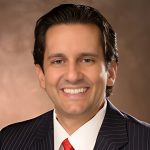 Originally from the suburbs of Philadelphia, Doug graduated Cum Laude from Gettysburg College double majoring in Economics and Management. After working for a financial planning firm in Philadelphia, Doug decided to move to Florida in 2002. With experience at both State Farm and Banker’s Life, Doug took time in developing Strategic Insurance and opened the independent agency in 2006. Doug enjoys working with clients to help solve the wide array of insurance and financial challenges that clients face today. Being an independent insurance advisor allows Doug to choose from a wide variety of companies and coverage’s to help his clients make the best decisions on their insurance needs while finding the best price for their hard-earned dollars.
Originally from the suburbs of Philadelphia, Doug graduated Cum Laude from Gettysburg College double majoring in Economics and Management. After working for a financial planning firm in Philadelphia, Doug decided to move to Florida in 2002. With experience at both State Farm and Banker’s Life, Doug took time in developing Strategic Insurance and opened the independent agency in 2006. Doug enjoys working with clients to help solve the wide array of insurance and financial challenges that clients face today. Being an independent insurance advisor allows Doug to choose from a wide variety of companies and coverage’s to help his clients make the best decisions on their insurance needs while finding the best price for their hard-earned dollars.
Doug was previously named one of Tampa Bay Business Journal’s Up Top 40 Under 40 Up & Comer’s. In 2016 Doug authored his first book entitled Surviving the Insurance Jungle, to help educate individuals & families on how to get the best value for their insurance dollar. Strategic Insurance has been named one of the Top Insurance agencies in the USA for the last 7 years, as ranked by Reagan Consulting's Best Practices Group placing the agency in the top 1% of all agencies in the USA. Doug takes great pride in creating a company culture where his team members are encouraged, treated like family & can grow in their careers. In 2022 Strategic Insurance was fortunate to be named one of Tampa Bay Business Journal’s Best Places to Work, which was quite an accomplishment as well as recognition to the culture that has been created at Strategic Insurance.
He is married to his beautiful wife Amy Levi, and they are blessed with 3 children. Abigail Grace Levi is 8 years old, Asher James Levi is 6 years old, & Avery Gwen Levi is 4 year old (at time of this update)! Doug doesn’t sleep much, but who needs sleep?! He loves his family & his “wifey for lifey” as Doug affectionately calls her, they enjoy their weekly date night without their kids! In his spare time, Doug enjoys going to the beach, exercising, boating, golf, tennis and spending time with his friends and family. Doug is also committed to his faith as a follower of Jesus Christ & attends Calvary Church Clearwater. Volunteering and giving back to the community are a big part of what Strategic Insurance stands for. Currently the Agency is committed to assisting the Florida Youth Ranch once a month to serve the kids meals, Prison Fellowship and Angel Tree Ministry, and Paint Your Heart Out Tampa, for the last several years.
Our sponsor, Tribevest provides the easiest way to form, fund, and manage your Investor Tribe with people you know, like, and trust. Tribevest is the Investor Tribe management platform of choice for Jim Pfeifer and the Left Field Investors’ Community.
Tribevest is a strategic partner and sponsor of Passive Investing from Left Field.

